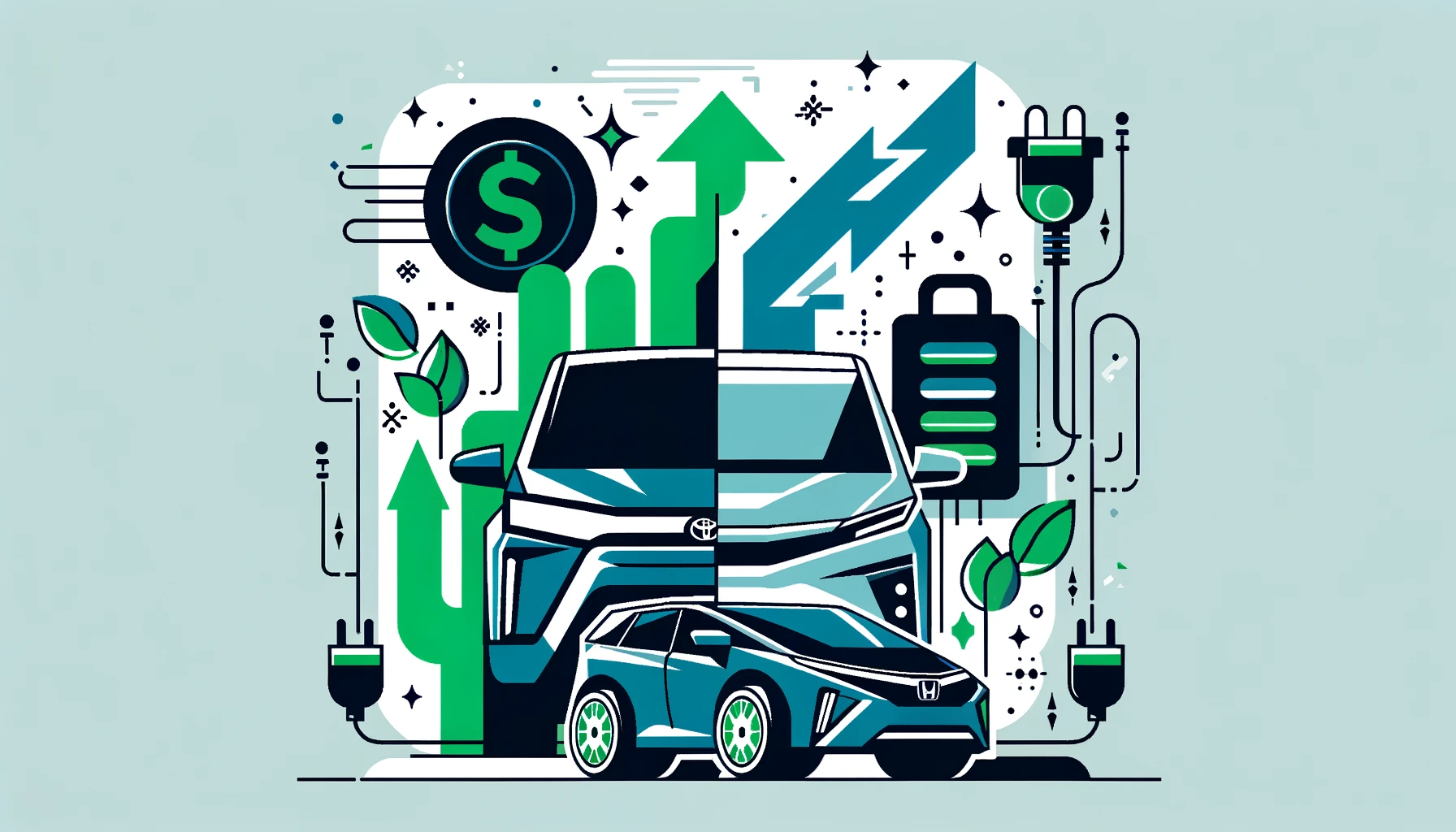
When Toyota Motor Corporation introduced the world’s first hybrid gasoline-electric vehicle, the Prius, in 1997, it initially incurred a loss on every unit sold. Fast forward to today, and booming sales in the hybrid category are delivering a much-needed financial boost. The world’s largest automaker recently reported an annual operating profit of ¥5 trillion (RM152.01 billion), marking the first time any Japanese company has reached this milestone, with an industry-leading margin of 11.9%. Hybrid sales surged 32% to 3.59 million units, accounting for one out of every three cars Toyota sells.
As the transition to battery-electric vehicles takes longer than anticipated, consumers are increasingly opting for hybrids, putting their money where their preferences lie. This trend is providing Toyota, Honda Motor Co., and other automakers with hybrid lineups an opportunity to accumulate cash, which can be reinvested in the gradual shift towards fully electric vehicles.
Toyota’s hybrids have become as profitable as their gasoline-engine counterparts, with some models even more so. “The profitability of Toyota’s hybrids versus gasoline-engine cars are now the same, and in some cases more for some models, which means that the more we sell, the more they will contribute to profitability,” said Masahiro Yamamoto, an operating officer in Toyota’s accounting group, during the company’s post-results briefing on May 8.
The cost to manufacture hybrid vehicles has significantly decreased to a sixth of what it was when the Prius was first introduced. Toyota forecasts 4.48 million hybrid vehicle sales in the current fiscal year through March 2025, providing a strong possibility of achieving its goal of five million units ahead of schedule.
Honda has also made strides in improving the profitability of its hybrid vehicles. Chief Executive Officer Toshihiro Mibe stated during the carmaker’s earnings news conference on March 10 that excluding electric vehicles, Honda’s four-wheeler business is expected to post an operating profit margin of around 8% this fiscal year. This marks a significant improvement from the previous fiscal year, which saw a 4.1% margin following a ¥16.6 billion loss. “Hybrids are very competitive, including on the cost front,” Mibe noted.
Honda aims to increase hybrid sales to about one million units this fiscal year, up from approximately 800,000 in the latest period. Mibe is also working with suppliers to build the capacity to produce two million units annually, in anticipation of greater demand.
Nissan Motor Co. is also looking to capitalize on the hybrid boom. In its medium-term management plan announced in March, the Japanese automaker revealed plans to introduce models employing its proprietary “e-Power” hybrid technology in the U.S. market by fiscal 2026.
Ford Motor Co. is planning to double production of hybrid versions of its F-150 pickup and lower prices to match the gasoline model. Similarly, South Korea’s Hyundai Motor Co. is reportedly planning to enable its EV plant being built in Georgia to also manufacture hybrids.
Even smaller Japanese automakers are joining the trend. Mazda Motor Corp. President Masahiro Moro announced that the carmaker plans to develop hybrids using its SkyActive engines to deliver improved performance for its CX-5 models. “The media, investors, and dealers are all talking about ‘hybrids, hybrids, hybrids,’” Moro said. “The perception has changed dramatically.”
Hybrid Sales and Market Impact
| Manufacturer | Annual Hybrid Sales (units) | Profit Margin (%) |
|---|---|---|
| Toyota | 3.59 million | 11.9 |
| Honda | 1 million (target) | 8 |
- Toyota’s Record Profit: Achieved ¥5 trillion in annual operating profit, a first for any Japanese company.
- Hybrid Sales Surge: Toyota’s hybrid sales jumped 32% to 3.59 million units.
- Cost Reduction: Manufacturing costs for hybrids are now a sixth of the initial costs.
- Honda’s Profitability: Improved margins in hybrid sales, targeting one million units this fiscal year.
- Nissan’s e-Power Technology: Plans to introduce hybrid models in the U.S. by fiscal 2026.
- Ford and Hyundai: Doubling hybrid production and integrating hybrid manufacturing in new EV plants.
- Mazda’s SkyActive Engines: Developing hybrids for improved performance in CX-5 models.
The success of hybrid vehicles is reshaping the automotive industry. Toyota’s significant profit boost and the growing demand for hybrid vehicles highlight a shift in consumer preferences. As the industry slowly transitions towards fully electric vehicles, the current trend towards hybrids is providing a critical bridge, offering both environmental benefits and financial gains for automakers. This shift underscores the importance of hybrid technology in the automotive industry’s evolution, positioning companies like Toyota, Honda, Nissan, Ford, Hyundai, and Mazda to capitalize on the growing hybrid market while preparing for a future dominated by electric vehicles.
Related News:
Featured Image courtesy of DALL-E by ChatGPT
